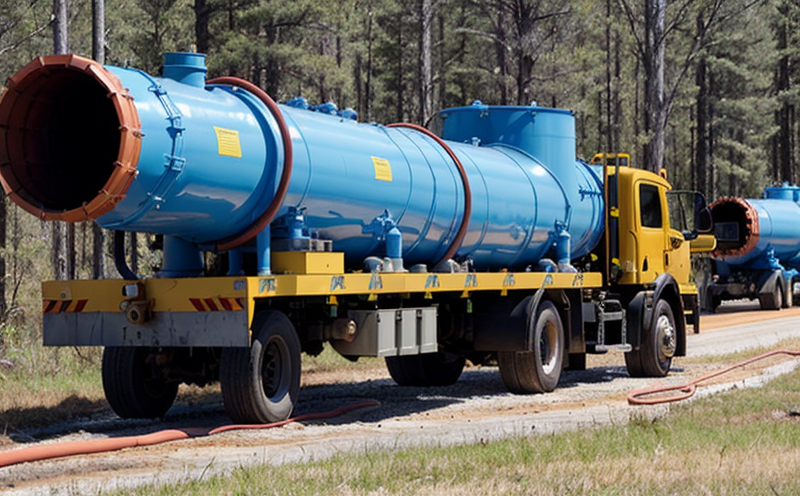API 1104 Weld Quality Testing in Pipeline Construction
The American Petroleum Institute (API) Specification API 1104, titled "Welding, Inspection and Testing of Pipelines Carrying Hydrocarbons," is a cornerstone document for ensuring the integrity and safety of pipelines used to transport hydrocarbon fluids. This specification mandates rigorous testing procedures aimed at guaranteeing that welds in pipeline construction meet or exceed the required quality standards.
API 1104 specifies various welding processes, inspection methods, and acceptance criteria designed to prevent leaks and ensure the longevity of pipelines. Welding defects can lead to catastrophic failures if not detected early enough, posing significant risks to both personnel safety and environmental protection. Therefore, adhering strictly to API 1104 ensures that only high-quality welds are used in pipeline construction.
The testing procedures outlined in API 1104 cover a range of methodologies including visual inspections, radiographic examination (RT), ultrasonic testing (UT), magnetic particle inspection (MPI), and liquid penetrant inspection (PT). Each method serves to identify specific types of defects that could compromise the pipeline's integrity. Visual inspections are used initially as a first-line defense against visible flaws such as slag inclusions or porosity. For more detailed evaluations, radiographic tests provide three-dimensional images revealing internal defects.
Ultrasonic testing measures sound wave reflections within materials to detect sub-surface flaws. Magnetic particle inspection detects surface and near-surface cracks by applying magnetic fields and observing the distribution of iron filings around defect sites. Liquid penetrant inspection works similarly but uses fluorescent or dye-penetrants to highlight surface-breaking defects.
Weld quality testing according to API 1104 is a critical component of pipeline safety, particularly in sectors where hydrocarbon transportation is paramount. By ensuring that only qualified welders perform the work and by applying stringent inspection protocols, this specification helps prevent costly accidents and environmental damage.
In summary, adherence to API 1104 ensures that pipelines are constructed with high-quality welds capable of withstanding the stresses of long-term operation without failure. This commitment not only protects infrastructure but also safeguards public safety and ecological balance.
Applied Standards
| Standard | Description |
|---|---|
| API 1104 | Welding, Inspection and Testing of Pipelines Carrying Hydrocarbons. |
| American Society for Testing and Materials (ASTM) | Inclusionary standards such as A370, which covers mechanical testing methods. |
| International Organization for Standardization (ISO) | ISO 9001:2015 on quality management systems. |
| British Standards Institution (BSI) | BSEN ISO 3804-1, which provides guidance on non-destructive testing of welded joints. |
Benefits
- Ensures compliance with industry best practices and regulatory requirements.
- Promotes reliability and safety by eliminating substandard welds before installation.
- Aids in reducing the risk of catastrophic failures leading to accidents or environmental harm.
- Supports long-term operational efficiency through durable infrastructure.
International Acceptance and Recognition
- API 1104 is widely adopted globally, particularly in regions with significant hydrocarbon transportation.
- The specification's stringent requirements have earned it recognition from regulatory bodies worldwide, including the U.S. Department of Transportation (DOT) and European Union authorities.
- Adherence to API 1104 is a prerequisite for many international certification programs aimed at ensuring pipeline integrity.





